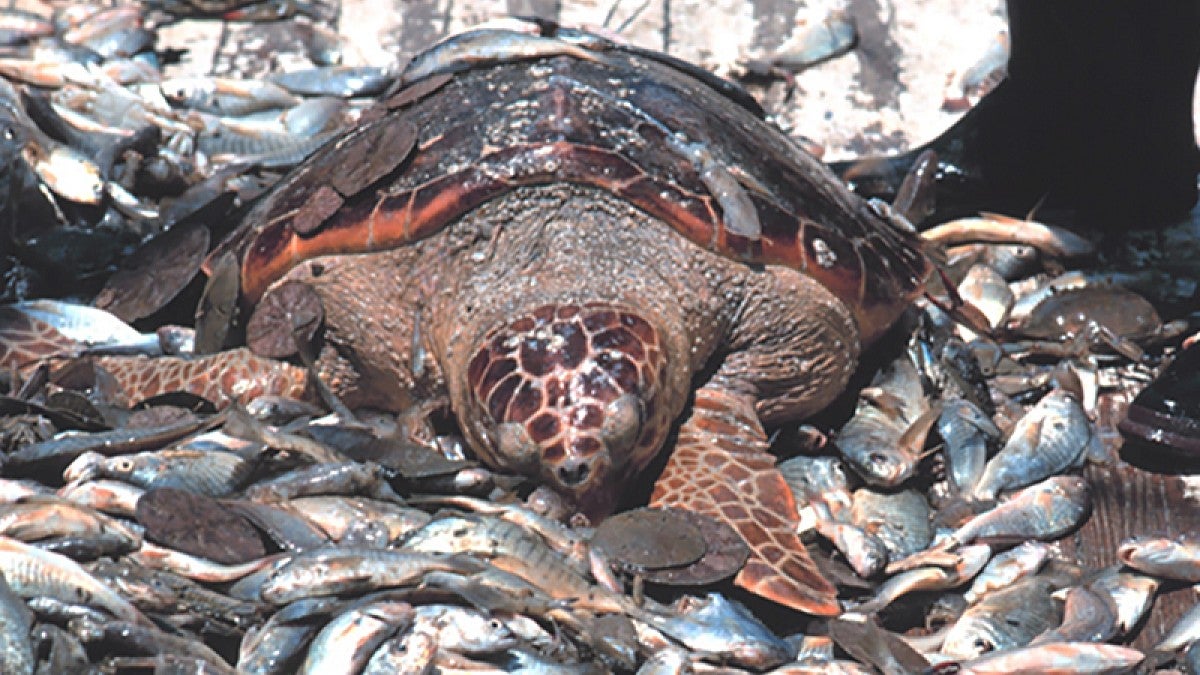Better fisheries management could reverse spiraling population declines in roughly half of threatened ocean species caught unintentionally, according to a new study co-led by University of Oregon economist Grant McDermott.
Reducing commercial fishing pressure, which involves large-scale harvesting of fish with methods that also capture untargeted species, known as bycatch, could be done with less than a 5 percent loss in profits, McDermott and nine co-authors reported in a paper in the March 16 issue of the journal Science. Eventually, reforms could raise overall yields by 15 percent and profits by as much as 80 percent, the team concluded.
“Many of the world’s fisheries are overfished,” said McDermott, an environmental economist who joined the UO’s Department of Economics last fall. “If we solve that problem, we not only give the fishing industry greater long-term profits and allow for greater sustainability of the target fisheries, we also help many of these threatened bycatch species rebound.”
Reductions in overfishing would bring important collateral benefits to a variety of marine mammals, turtles and birds, the researchers noted. Many are unintentionally caught in fishing nets and lines as bycatch along with targeted fish stocks, which are in demand as primary protein for about 40 percent of the world's human population.
Restoring declining populations for other bycatch species, such as Mexico’s vaquita porpoise and New Zealand’s Maui dolphin that are facing extinction, however, would come at a higher cost — 50 percent or more of profits — unless fishing technologies are improved, the researchers found. Some species, McDermott said, are threatened by other practices, such as the poaching of turtle eggs and environmental changes.
The research team’s assessment was based on 95 percent of 1,000 simulations that were generated with available worldwide data fed into a series of mathematical formulas. Data were gathered from mostly academic studies of endangered species ecology and fishing industry behavior in high-volume fishing areas around the world and from available intergovernmental databases.
“There is a lot of uncertainty about bycatch,” McDermott said. “We wish we knew a lot more. What we’ve tried to do is account for and incorporate that uncertainty into our analysis as best as we can. The reassuring, and possibly surprising, thing is that our central finding ends up being very robust to these various forms of uncertainty.”
The goal is to help reform fisheries to be more efficient and reduce bycatch at the lowest cost, he said. An overall restructuring could, for instance, require tweaking the adjustments for the various targeted fish stocks so that profits and bycatch problems are addressed in an equitable way, he said.
As part of the paper’s publication, the researchers are making all their data and code publicly available to foster replication and further analysis on how fisheries could be reformed.
“In this study we don’t go into depth on how to reform global fisheries," said McDermott, who began the project alongside fellow co-lead author Matthew Burgess while they were both postdoctoral researchers under co-author Christopher Costello at the University of California, Santa Barbara.
“What we are saying, however, is that we know what the industry looks like now and what it will need to look like to maintain long-term economic yield and profitability,” McDermott said. “And reducing the plunder of the ocean that is happening in the drive to catch target fish stocks has this important collateral benefit of relieving the threat to endangered bycatch species.”
The Zimbabwe-born McDermott grew up in South Africa, where he worked in the finance industry after earning a bachelor’s degree in economics from the University of Cape Town. After a six-month cycling trip around Africa, which he described as a great adventure that helped bring clarity on a career path, he pursued a doctorate in economics at the Norwegian School of Economics.
The Waitt Foundation and Ocean Conservancy funded the research, which also was supported by a National Science Foundation graduate research fellowship to co-author Lindsey Peavey Reeves at UCSB and the Channel Islands National Marine Sanctuary.
—By Jim Barlow, University Communications


